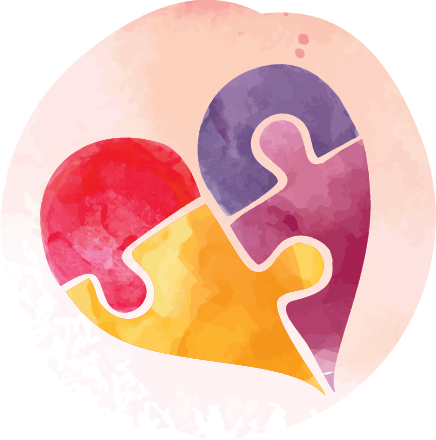Press











ABOUT Sam
SERVICES
Team Ruthless
EVENTS
GRIEFHAB™
PODCAST
RETREATS
shop
HEALING TOGETHER THROUGH THE HOLIDAYS - MAIN EVENT
HEALING TOGETHER - FOR A CAUSE: VIRTUALLY
HEALING TOGETHER - FOR A CAUSE: PILATES IN THE PARK - MICHIGAN
HEALING TOGETHER - FOR A CAUSE: VISIBLE - COLORADO
September 6-7
Jimtember Virtual Jubilee
blog
December 2nd - 8th / Metro Detroit AND VIRTUALLY
August 27th & 28th
August 30-31st
rUTHLESS IN THE ROCKIES
TEAM RUTHLESS
THE CONFIDENCE CONFERENCE
mOBILE rECOVERY dAY
Next event: September 10-23rd, Colorado
October 5-6th -
Virtual Event
September 30th, Castle Rock, Colorado
7 Groups Every week Plus Every Holiday
HEALING TOGETHER - FOR A CAUSE: Ride & ROAR - DALLAS
October 11 -12th
Stay Tuned!
FACES OF GRIEF
JOIN US
Zero Is A Size (Not A Measurement Of Self-Worth)
February 23, 2016
All across the United States (and in several other countries as well), some men and women are starving themselves. Other men and women are bingeing to the point of becoming sick. Still others are becoming so fixated on eating “healthy” that they are denying their bodies the nutrition that comes from a balanced, well-rounded diet. The possible reasons why these individuals have been driven to such extremes are endless; however, their realities are the same. They all suffer from a mental illness known today as “eating disorders.”
February 21-27, 2016 is National Eating Disorder Awareness Week. According to NationalEatingDisorders.org, 20 million women and 10 million men (in the U.S. alone) suffer from a clinically significant eating disorder at some point in their lives. Though incredibly pervasive, eating disorders are still largely misunderstood. They are difficult to identify and even more challenging to treat, and unfortunately many men and women suffer in silence. In honor of Eating Disorder Awareness Week, I’m taking this opportunity to shed some light on this poorly understood but incredibly important disorder.
Eating Disorders Are Mental (Not Physical) Illnesses
Because those battling an eating disorder experience such negative physical repercussions, many people believe that eating disorders are physical illnesses. While they do cause physical challenges, however, eating disorders stem from emotional issues. There are countless different situations that can drive someone to develop an eating disorder, but there are two predominant causes.
- Struggles With Body Image
- If a man or a woman is seriously unhappy with his or physical appearance for any reason, they may be at risk for developing an eating disorder. After months of carefully restricting their diets in order to achieve desired results, they may become obsessive and unable to recognize the harm they may be inflicting upon themselves.
- Struggles With Control
- If a man or a woman’s life becomes too stressful or overwhelming (or if he/she is surrounded by too many domineering individuals), they may feel like they completely lack control over their lives. Individuals in these situations may be driven to take control over the one aspect of their lives they feel that they can truly influence: their diets. Over time, this desperation for control can lead to unhealthy and obsessive habits.


If you believe you (or someone you know) may be suffering from an eating disorder, I would love the opportunity to talk with you/them. As an experienced online mental health counselor, I can work with you to develop strategies for overcoming the struggles you may be facing. Let us work together to begin wearing sizes again, rather than identifying as them!
Leave a Reply Cancel reply
120 E. Front St. Loft 2 Traverse City MI 49684 &
77 Monroe Center St Ste 600 Grand Rapids MI 49503
phone : +1 (231)707-0707


Donate TO GRIEFHAB™
Donate today to help make our events and services free for everyone.
You can also donate directly to support a specific client in need.
four
three
info & Investment
two
THE FOUNDER
one
fIVE
GRAB A COPY OF MY
BOOKS & MERCHANDISE
four
three
info & Investment
two
THE FOUNDER
one


fIVE
GRAB A COPY OF MY
BOOKS & MERCHANDISE










HEALING TOGETHER EVENT
EVENTS
four
three
info & Investment
two
THE FOUNDER
one
fIVE
GRAB A COPY OF MY
BOOKS & MERCHANDISE
four
three
info & Investment
two
THE FOUNDER
one





fIVE
GRAB A COPY OF MY
BOOKS & MERCHANDISE










FACEBOOK FAMILY
GRIEFHAB™ SERVICES
FACES OF GRIEF
Our Press Features
THE BE RUTHLESS SHOW
two
three
Recent Articles
one





Coming in September! Stay Tuned.
December 2nd -8th / Metro Detroit AND VIRTUALLY
August 25th
August 30-31st
October 11 -12th
Stay Tuned!










four
three
info & Investment
two
THE FOUNDER
one





fIVE
GRAB A COPY OF MY
BOOKS & MERCHANDISE
four
three
info & Investment
two
THE FOUNDER
one





fIVE
GRAB A COPY OF MY
BOOKS & MERCHANDISE











